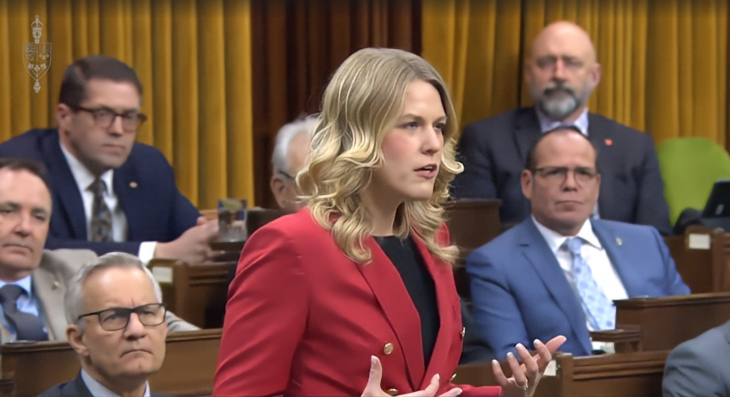
By Christopher Guly
Gatineau, Que. – Neither Canadian Heritage nor the Broadcasting Act should play a role in overseeing telecommunications or the internet, Alberta Conservative member of Parliament Rachael Thomas told an audience at the Canadian Association of Wireless Internet Service Providers conference in Gatineau, Que. on Wednesday.
“When we choose to use the Broadcasting Act, which is meant for TV and radio, and we’re bringing the internet underneath that, that’s an incredibly antiquated move,” Thomas, the official opposition shadow minister for Canadian Heritage, told Cartt in an interview following her appearance at an afternoon panel. The panel discussed Bill C-11, which would amend Canada’s broadcasting law to include such updates as considering the transmission or retransmission of programs over the internet as a distinct class of broadcasting undertakings. Thomas has been an outspoken critic of the bill.
She pointed to the United Arab Emirates as an example of a forward-looking country, which has a ministry of cabinet affairs and “the future,” and a minister of state for government development and the future.
“We have the opportunity to think about our future,” said Thomas, who serves on the House Standing Committee on Canadian Heritage. “Instead, we’re wanting to hold the internet back and bringing it to the past – and I think that’s wrong.”
She said that the Broadcasting Act was introduced in 1991 to regulate television and radio “because there was deemed to be a finite resource – limited channels, limited availability of spectrum.”
“So there was this movement by government to say the French language and the French culture needs to be represented within these platforms. In order to make sure that happens, there would be regulation,” said Thomas.
“The Broadcasting Act then mandated that a certain percentage of content needed to be [in the] French language,” she said, adding that the legislation also mandated that “a certain portion of broadcasting revenue had to go into an art fund, which then could be pooled from to create CanCon.”
Thomas said that under C-11, which is back in the Commons to consider Senate amendments to the bill, the internet has been brought “under that same scheme.”
“The internet is infinite,” she said. “If you want a presence on the internet – no matter what your language is or your culture is, you can have a presence on the internet. So we do not need the government to regulate the internet space to make sure there is somehow fair access.
“The internet is the most magical space available on the face of this planet when it comes to equal access,” said Thomas. “It, in itself, is an equalizer. It does not need government regulation.”
However, Canadians, especially those living in rural and remote areas, also need access to the internet – a challenge highlighted by the Office of the Auditor General of Canada in a report to Parliament delivered earlier this week.
Using data provided by Innovation, Science and Economic Development Canada, the auditor general found that in 2021, 90.9 per cent of households had access to minimum connection speeds across Canada, but only 59.5 per cent of households in rural and remote areas, and 42.9 per cent of households on First Nations reserves, had access at those speeds.
As part of its review of connectivity in rural and remote areas, Auditor General Karen Hogan’s team examined applications under the Broadband Fund of the Canadian Radio-television and Telecommunications Commission and found that it took, on average, 17 months “to reach an initial decision to award funding and an additional five months to grant final approval,” a year longer than the CRTC’s original estimate.
“If we’re thinking futuristically, we have to act with decisiveness and we have to act quickly,” Thomas, who represents an urban-rural riding, said at the CanWISP conference, highlighting how farming operations are run by robotics.
“Without access to sufficient internet, this industry is hurt,” she said. “We’re not only feeding Canada, we’re feeding the world.”
Peter Menzies, former vice-chair of telecommunication at the CRTC, where he also served as regional commissioner for Alberta and the Northwest Territories, told conference attendees that the roughly 100,000 people living north of 60 are not on the radar of major high-speed internet service providers.
“But they are citizens, so they deserve to be treated as citizens and connected,” said Menzies, adding that the CRTC should bolster its regional presence beyond the national capital region where it is headquartered.
CanWISP executive director Jonathan Black noted that there are “still people on dial-up.”
“My fear is that funding has gone to those who have are getting more, and those who don’t have, still don’t have,” he said.
Screenshot of Alberta MP Rachael Thomas.


